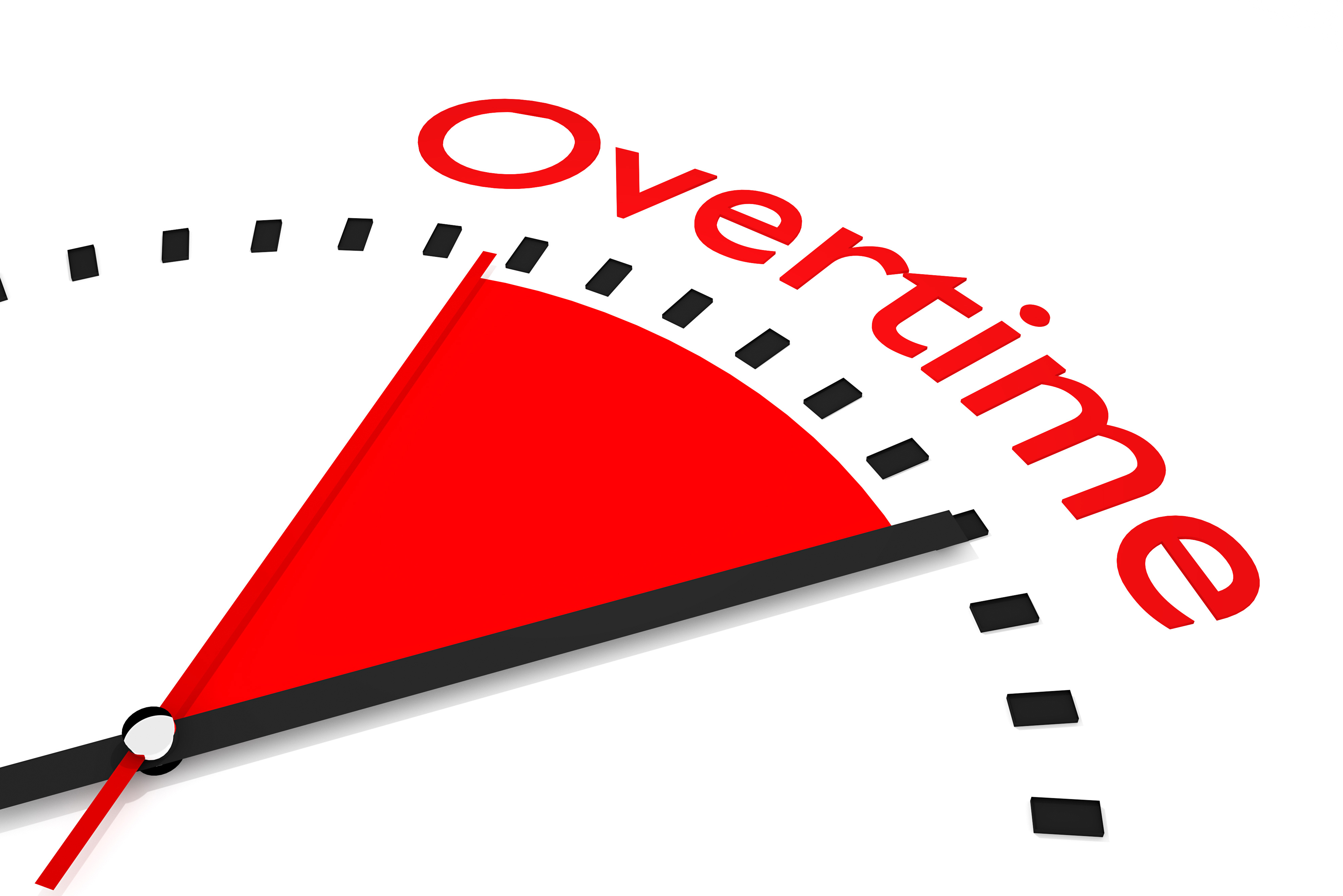Overtime Megan Leak - What You Should Know
There's been a lot of talk, you know, about what some are calling the "overtime Megan leak," and it really brings up some pretty interesting points about how workplaces handle their people and the rules they follow. It's more or less about making sure everyone gets a fair shake when it comes to working hours and what they earn. This whole situation, in a way, just puts a spotlight on some things that might seem a little bit confusing for folks, especially when we talk about what's legal and what's not in the world of work. We're going to break down some of those key ideas that sort of popped up because of this.
When you think about it, a lot of what goes on behind the scenes at a job, particularly with pay and hours, is actually guided by a whole set of rules. These rules are there for a reason, you see, to protect everyone involved. Sometimes, though, how these rules play out in real life can be a bit different from what people expect, or what they think they understand. So, this discussion around the "overtime Megan leak" helps us, actually, look closer at those everyday things that impact so many working individuals.
The basic idea is that when information about how a company operates, or maybe how certain people are paid, comes to light, it often makes us all think about the bigger picture. It's not just about one person or one situation; it's about the general principles of fairness and compliance that should, you know, be present in every workplace. We'll talk about some specific aspects of labor laws that are, in some respects, quite relevant to what this "leak" might represent, helping you get a better handle on these important employment matters.
Table of Contents
- Who is Megan and What's the Overtime Megan Leak About?
- Why Are Labor Law Posters So Important After an Overtime Megan Leak?
- Do All Employees Get Overtime Pay, or Is There an Overtime Megan Leak Exemption?
- What About Meetings and Overtime Megan Leak Implications?
- Is There a Limit to How Many Hours Someone Can Work After an Overtime Megan Leak?
- Understanding Commissioned Employees and Their Pay
- The Role of Outside Sales Representatives in Overtime Rules
- Keeping Up with Labor Law Changes
Who is Megan and What's the Overtime Megan Leak About?
When people talk about the "overtime Megan leak," it really points to a situation where some information, perhaps about how a company handles its pay practices or working hours, became public. It's not, you know, about a specific person named Megan whose life details are out there for everyone to see. Instead, "Megan" here acts more like a way to refer to the source or the focus of this information coming out. The "leak" part just means that details about how overtime is managed, or maybe not managed, at a particular place of work have come to light. We don't have any personal biographical data on a specific individual named Megan from the information provided, so we can't share any personal background details. The main thing here is the discussion it sparks about labor laws and what they mean for people working every day.
It's important to remember that when we talk about a "leak" in this context, we're really focusing on the *information* that got out, not necessarily the person who might have been involved in bringing it to attention. The core of the conversation, pretty much, revolves around how workplaces are supposed to operate under the rules for pay and hours. So, while the name "Megan" might be attached to this event, the actual focus for us is on the principles of fair work practices that are, in a way, very important for everyone in a job. This kind of event, you know, often serves as a reminder for businesses to check their own practices.
Since the provided information talks about labor laws and employment rules, any specific personal details about a person named Megan are not relevant to the legal points being made. The "overtime Megan leak" is more of a signal, you see, that something about how overtime is handled might be worth looking into for many businesses. It's a prompt, really, for us to talk about the laws that are there to protect people and make sure they get paid correctly for the time they put in. So, we're going to keep our discussion focused on those rules and what they mean for workers and employers alike.
| Personal Details - "Megan" (Illustrative) | |
|---|---|
| Name | Not applicable (Illustrative name for a hypothetical situation) |
| Role in "Leak" | Represents the focal point of information disclosure about overtime practices |
| Background | Information not provided in source text |
| Connection to Labor Law | Her situation, or information associated with her, highlights specific labor law considerations |
Why Are Labor Law Posters So Important After an Overtime Megan Leak?
You know, one of the first things that often comes up when there's a discussion like the "overtime Megan leak" is the idea of those labor law posters. You see them, pretty much, in every workplace, usually in a break room or near a time clock. These aren't just for decoration; they're actually a really important way for employers to tell their staff about their rights and what the company is supposed to do. For example, the source text talks about getting a complete labor law poster for a specific price from a certain website, and that it includes state, federal, and OSHA posting requirements. This is, in a way, very fundamental.
Think about it: these posters are like a quick guide to what's fair and what's expected in a job. They cover things like minimum wage, rules about equal opportunity, and safety regulations from OSHA, which is the Occupational Safety and Health Administration. If there's ever a situation like the "overtime Megan leak" that suggests something might be off with how a company handles its workers, one of the first things people might wonder is if the company is even following these basic display rules. It's almost like a baseline for proper conduct, you know?
Making sure these posters are up-to-date and visible is, honestly, a pretty simple step for any business. It shows that they are, in some respects, trying to be open and clear with their team about important legal stuff. If a business doesn't have these posters, or if they're old and don't show the current rules, it can, you know, create a feeling that the company isn't really on top of its legal duties. So, after any kind of situation that brings workplace practices into question, like an "overtime Megan leak," these posters become even more of a symbol of a company's commitment to following the rules.
Do All Employees Get Overtime Pay, or Is There an Overtime Megan Leak Exemption?
This is a really common question, and it's something that might, you know, come up a lot when people hear about an "overtime Megan leak" or similar situations. The simple answer is no, not every single person who works gets paid extra for working more than forty hours in a week. There are, as a matter of fact, certain types of jobs or ways people are paid that mean they don't have to follow those specific rules for overtime. The text we're looking at specifically mentions commissioned employees who are outside sales representatives as an example of people who don't have to be paid minimum wage or overtime.
It's kind of interesting, because the law makes a distinction between different kinds of work. Some jobs are considered "exempt," which basically means they are not subject to certain parts of the Fair Labor Standards Act, like the rules about minimum wage and overtime. Other jobs are "non-exempt," and those are the ones where the employer absolutely has to pay time and a half for hours worked over forty in a workweek. The "overtime Megan leak" could, in a way, be about someone wondering if they should have been paid overtime but weren't, and if they fit into one of these exempt categories.
So, what makes someone "exempt"? Well, it usually has to do with the kind of duties they perform, how much they get paid, and sometimes how they are paid. For instance, outside sales reps who earn commissions are often in this exempt group. This means that even if they work sixty hours in a week, their employer doesn't have to pay them extra for those additional twenty hours beyond the standard forty. It's a pretty specific rule, and understanding it is, you know, quite important for both workers and the people who employ them. This distinction is, in some respects, a frequent source of confusion.
What About Meetings and Overtime Megan Leak Implications?
This is another area where things can get a little bit fuzzy, and it's something that might very well be part of the discussion sparked by an "overtime Megan leak." The source text makes a point that if those commissioned employees are outside sales representatives, then no pay is required for their meetings. This means that if someone fits that specific description, the time they spend in a meeting, even if it's outside their usual working hours or adds to their total weekly hours, doesn't necessarily count for extra pay.
It's basically tied back to that "exempt" status we just talked about. If a person's job is set up in a way that makes them exempt from overtime rules, then the company doesn't have to pay them for every single hour they spend on work-related tasks, including attending meetings. This is, you know, quite different from how it works for non-exempt employees, who typically must be paid for all hours worked, including time spent in required meetings. So, the question of whether meeting time counts for pay depends entirely on the employee's classification.
This particular rule can sometimes lead to misunderstandings. People might feel like if they're at a meeting, they should be getting paid for it, especially if it's long or happens outside of what they consider their normal workday. But for certain roles, like those outside sales reps, the law sees their compensation structure, which often relies on commissions, as covering all their work-related activities. So, the "overtime Megan leak" could highlight situations where employees might have felt they were owed pay for meetings, but legally, they weren't, because of their specific job type. It's a fine point, you know, but an important one.
Is There a Limit to How Many Hours Someone Can Work After an Overtime Megan Leak?
This is a question that often comes up, and it's something that an "overtime Megan leak" could certainly bring to the forefront. The source text actually states quite clearly that "There is no legal limit to the number of" hours someone can work. This might sound surprising to some people, but it's true in many places in the United States. While there are rules about *how* you get paid for working a lot of hours, there isn't, you know, a federal law that says an adult employee can only work a certain maximum number of hours in a day or a week.
Now, this doesn't mean employers can just make people work around the clock without any consequences. What it means is that if someone is a non-exempt employee, and they work more than forty hours in a week, they still have to be paid overtime for those extra hours. The law doesn't say "you can't work more than 60 hours"; it says "if you work more than 40 hours, you get paid extra for the time over 40." So, the focus is on compensation, not on setting a hard cap on work duration. This is, you know, a pretty key distinction.
Of course, there are practical limits. People need rest, and working excessive hours can lead to burnout, mistakes, and safety issues. Some states or specific industries might have their own rules about daily or weekly work limits, especially for things like truck drivers or certain types of jobs where fatigue is a big safety concern. But on a general federal level, the law focuses on how you're paid for those hours, rather than putting a ceiling on them. So, an "overtime Megan leak" might, in a way, reveal a workplace where people are working incredibly long hours, which while not illegal in terms of sheer quantity, certainly raises questions about well-being and, you know, whether all the overtime rules are being followed correctly.
Understanding Commissioned Employees and Their Pay
Let's talk a little bit more about commissioned employees, because their pay structure is, you know, quite different from someone who just gets a straight hourly wage or a set salary. When we say "commissioned," it basically means a significant part of their earnings comes from a percentage of the sales they make, or the services they provide. This is a common way to pay people in sales roles, for example. The idea is that the more they sell, the more they earn, which can be a pretty strong motivator.
The important thing to remember here, especially when thinking about something like an "overtime Megan leak," is how these commissions play into whether someone gets overtime. For many commissioned roles, particularly those that involve selling things outside of a main office, the law views their compensation as already covering all their work time, including any hours that might go beyond forty in a week. It's a different way of looking at pay for time spent working, you know, compared to a regular hourly employee.
So, if someone is paid primarily through commissions, their overall earnings are tied to their performance, not strictly to the number of hours they punch in. This can sometimes lead to confusion or frustration if they work very long hours but don't see that extra "time and a half" on their pay stub. It's a specific legal classification, and understanding it is, in some respects, pretty key to figuring out who gets what when it comes to overtime rules. This distinction is, actually, a frequent point of discussion in labor law.
The Role of Outside Sales Representatives in Overtime Rules
Now, let's zoom in on "outside sales representatives," because they're a pretty specific group when it comes to overtime. The text mentions them directly as being exempt from minimum wage and overtime laws if they're commissioned employees. So, what exactly makes someone an "outside sales rep" in the eyes of the law? It's not just about selling things; it's about *where* and *how* they do their selling.
Typically, an outside sales rep spends most of their working time away from the employer's place of business. They might be visiting customers at their homes or businesses, traveling from one client to another, or working from a home office but primarily engaging in sales activities outside. Their main job, you know, is to get orders or contracts for services. This is different from someone who sells things from a store counter or over the phone from an office. That kind of selling is usually considered "inside sales," and those folks are generally not exempt from overtime.
The reasoning behind this exemption for outside sales reps is, in a way, that their work isn't easily tied to a strict hourly schedule. They often set their own hours, travel a lot, and their success is measured by the sales they close, not the clock. So, the law gives employers a bit more flexibility in how they pay these individuals, assuming their commission structure will adequately compensate them for their efforts, regardless of the hours. This is, as a matter of fact, a key part of the rules that might be highlighted by an "overtime Megan leak" if it involves someone in a sales role.
Keeping Up with Labor Law Changes
One thing that's always true about labor laws is that they can, you know, change. What was accurate last year might be different this year, and new rules or interpretations can pop up. That's why the mention of things like getting a complete labor law poster that includes state, federal, and OSHA posting requirements is so important. It's not a one-time thing; businesses really need to stay on top of these updates to make sure they're always in compliance.
For employers, this means regularly checking with reliable sources, like government labor departments or reputable legal services, to ensure they have the most current information. For employees, it means being aware that the rules do exist and that they can evolve. A situation like an "overtime Megan leak" often serves as a wake-up call for everyone involved to double-check their understanding of the current legal landscape. It's almost like a reminder that these things are, actually, living documents.
Ultimately, the goal of these laws is to create fair workplaces where people are treated properly and paid what they're due. Whether it's about understanding who gets overtime, how meetings are paid for, or simply making sure the right posters are displayed, staying informed is, in some respects, pretty crucial. The "overtime Megan leak" just brings these important discussions about employment rules right into the open, prompting us all to think about how our workplaces operate and if they're, you know, doing things the right way for everyone.

Who is Eligible for Overtime Pay in Ohio? | Marshall & Forman

What is Overtime and How Does it Work? - ezClocker

ERS Bio | Overtime & Attendance Management